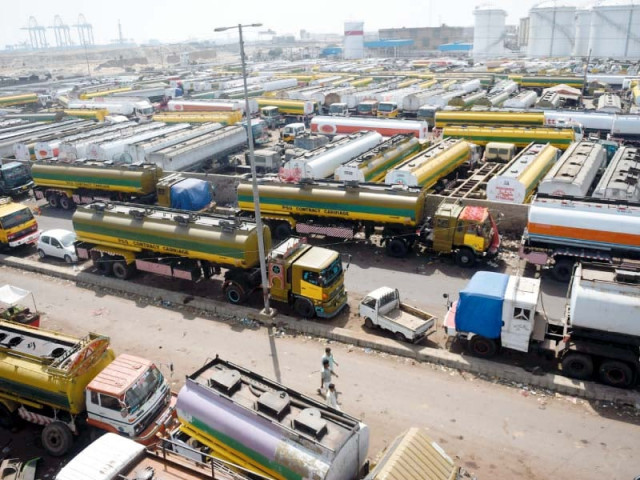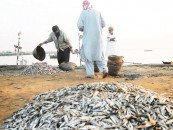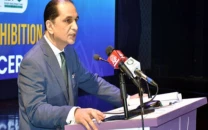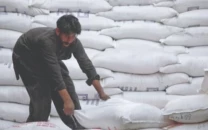Nationwide fuel shortage feared as Sindh imposes infrastructure cess on oil imports
Sindh's 1.8% cess may hike fuel prices by over Rs3 per litre, directly impacting consumers

The enforcement of 1.8% Sindh Infrastructure Development Cess by the provincial government has delayed the clearance of petroleum products at Karachi Port, creating fears of a nationwide shortage of fuel supplies.
The 1.8% cess could raise the cost of petroleum products by more than Rs3 per litre. The imposition of this cess will directly impact consumers, even though fuel prices are regulated.
The Oil Companies Advisory Council (OCAC) has written a letter to Sindh Chief Minister Murad Ali Shah, alerting him to the situation. According to the OCAC, petroleum product cargoes currently being discharged, as well as ships anchored at ports, require immediate customs clearance.
The letter stated that Pakistan State Oil’s oil tankers – MT Islam 2 and MT Hanifa – are berthed and awaiting customs clearance. It added that oil stocks at the Keamari oil terminal are depleting and the two vessels berthed at Karachi Port Trust (KPT) must be granted immediate customs clearance.
“Only after customs clearance can the continuity of the petroleum supply chain across the country be ensured.”
The letter warned that if Wafi Energy’s petroleum cargo and Parco’s crude oil cargo arriving at KPT on Tuesday are not cleared, the problem will intensify. The implementation of the Infrastructure Development Cess has exposed the downstream petroleum industry to severe financial and operational risks.
According to the OCAC, the agriculture season is currently underway, and under these circumstances, there is a risk that the supply chain of petroleum products across the country may come to a standstill. Even after the issue is resolved, it could take up to two weeks to restore normal supply.
The OCAC urged the government to take immediate notice of the matter and address the crisis on an urgent basis.
Meanwhile, the Oil Marketing Association of Pakistan (OMAP) also warned that the 1.85% Infrastructure Development Cess and mandatory bank guarantee requirement could disrupt petroleum imports across the country.
In a letter addressed to Energy Minister Ali Pervez Malik, OMAP Chairman Tariq Wazir Ali urged the federal government to immediately intervene and engage with the Sindh government to avert a looming fuel crisis.
Ali cautioned that the Sindh government’s new policy poses a “serious threat” to the national petroleum supply chain. He warned that unless the bank guarantee condition is withdrawn, Pakistan’s oil imports could face severe disruptions, potentially leading to a shortage of petrol and diesel nationwide.
He added that oil marketing companies are already under heavy financial pressure due to delays in sales tax refunds, foreign exchange losses, and low profit margins.
The newly introduced bank guarantee requirement, he said, could freeze working capital and make it impossible for companies to continue importing oil. The association warned that the enforcement of the cess could delay oil imports at Karachi Port, leading to potential fuel pump dry-outs across the country.
OMAP appealed to the energy minister to hold immediate discussions with the Sindh government and the Federal Board of Revenue to ensure that petroleum imports continue smoothly and the nation is spared from a fuel crisis.
“This issue requires urgent attention,” Ali emphasised. “If timely action is not taken, the country could face a severe shortage of fuel, impacting both the economy and industry,” he added.
Representing all registered oil marketing companies in Pakistan, OMAP reaffirmed its commitment to cooperating with the government but warned that without swift federal intervention, the situation could escalate into a full-blown energy crisis.
The Sindh government has yet to respond to a request for comment.





















COMMENTS (1)
Comments are moderated and generally will be posted if they are on-topic and not abusive.
For more information, please see our Comments FAQ